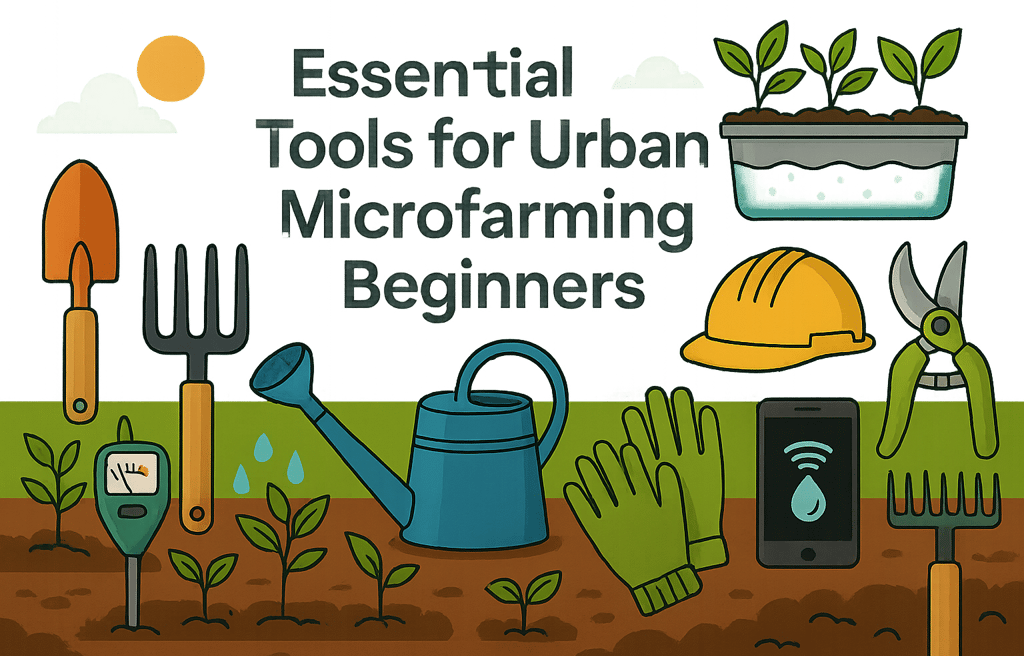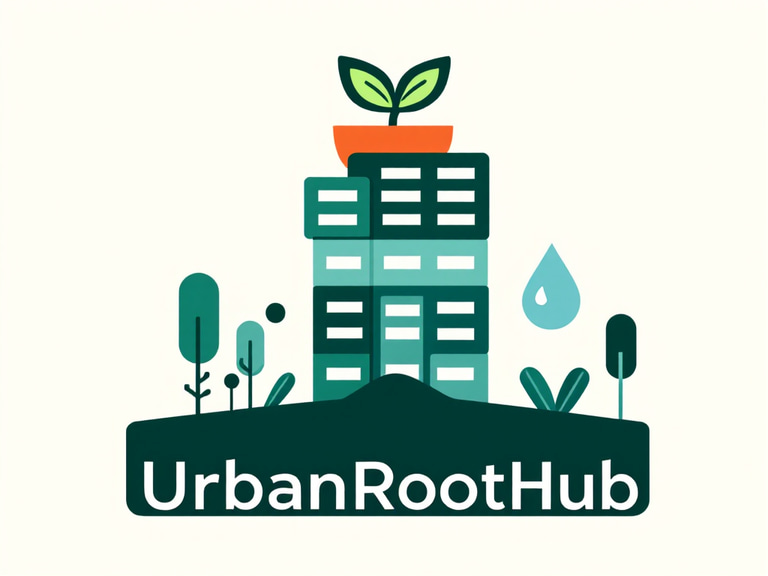Essential Urban Microfarming Tools: Ultimate Beginner's Guide (2025)
Explore the essential tools every urban microfarming beginner needs. From soil preparation and planting to innovative smart tech, ensure your urban farm thrives in 2025 and beyond.
Joel L
3/30/20252 min read


Essential Tools for Urban Microfarming Beginners: The Ultimate Guide (2025)
Urban microfarming is booming as city dwellers embrace sustainable, self-sufficient lifestyles. Starting your urban microfarm successfully depends largely on selecting the right tools. This guide provides beginners with an exhaustive breakdown of essential tools, from traditional equipment to innovative technology, ensuring productivity and sustainability.
Why Specialized Tools Matter in Urban Microfarming
Urban microfarming occurs in tight, unconventional spaces such as rooftops, balconies, and community plots, creating unique challenges like limited space, soil contamination, and resource constraints. The right tools maximize yields, simplify maintenance, and promote safety.
Categories of Essential Tools
1. Site Preparation & Soil Management
Hand Trowels & Cultivators: Compact and ergonomic, these tools manage soil efficiently in small spaces.
Soil Scoops: Essential for precise handling of soil amendments.
Soil Testing Kits: Ensure optimal soil conditions and safety from contamination.
2. Planting & Seeding
Dibbers & Seed Dispensers: Ensure uniform planting depth and seed distribution.
Seed Trays & Plug Systems: Facilitate controlled germination and easy transplanting.
Plant Labels: Keep your microfarm organized with clear, waterproof labeling.
3. Watering & Irrigation
Watering Cans: Ideal for precise manual watering.
Drip Irrigation Systems: Deliver targeted, efficient water use.
Smart Irrigation Controllers: Automatically adjust watering based on environmental conditions.
Rainwater Harvesting: Sustainable water sourcing reduces dependency on municipal water.
4. Plant Care & Maintenance
Pruning Tools: Compact pruning shears and scissors are indispensable for maintaining healthy plants.
Weeding Instruments: Precision tools help maintain neat, weed-free beds.
Organic Pest Control Tools: Sprayers and netting support non-toxic pest management.
5. Harvesting & Processing
Harvesting Knives & Scissors: Gentle yet effective harvesting without plant damage.
Processing Tables & Tools: Portable, foldable tables with drainage assist in efficient produce processing.
Multi-purpose Tools: Adjustable tools save space and optimize workflow.
6. Monitoring & Measurement
IoT Sensors & Data Loggers: Real-time monitoring of soil and environmental conditions.
Smart Apps: Integrate garden management, weather forecasts, and crop data for informed decision-making.
Drone & Satellite Technology: Emerging tools for advanced crop monitoring.
7. Safety & Personal Protective Equipment (PPE)
Head & Eye Protection: Goggles, hats, and respirators for handling hazardous materials safely.
Gloves & Footwear: Durable gloves and protective boots prevent injury and contamination.
Body Protection: Coveralls and aprons keep you clean and protected from chemicals and debris.
8. Advanced & Emerging Tools
Hydroponics & Aeroponics: Maximize vertical space, improve yield, and reduce water usage.
Modular Vertical Systems: Stackable and smart gardening setups perfect for limited spaces.
Digital Platforms & Analytics: Comprehensive management software optimizes planting, watering, and harvesting schedules.
Overcoming Common Challenges
Beginners often face hurdles such as limited space, soil quality concerns, and steep technology learning curves. Solutions include selecting compact, multi-purpose tools, investing in quality soil-testing kits, and gradually integrating smart technologies to streamline operations.
Real-World Urban Microfarming Examples
UrbanRootHub: Utilizes modular vertical gardening for maximum yield.
DripWorks: Employs advanced drip irrigation to efficiently manage water use.
Smart Garden Tools: Integrates smart sensors and IoT for real-time crop monitoring.
Essential Urban Microfarming Tool Checklist for Beginners
Hand trowel & cultivator
Soil testing kit
Seed trays and dibbers
Drip irrigation system
Smart irrigation controller
Compact pruning shears
Harvesting scissors and processing table
IoT-enabled sensors
Durable PPE including gloves, goggles, and boots
Modular vertical farming setup
Final Thoughts
Selecting the right tools is foundational to successful urban microfarming. By balancing traditional equipment with innovative technologies, beginners can confidently establish productive, sustainable urban farms, transforming cities into vibrant green spaces that nourish communities and enhance urban resilience.
